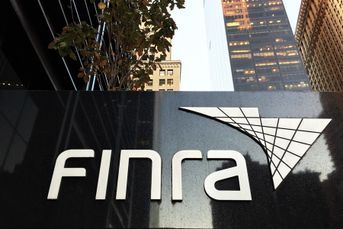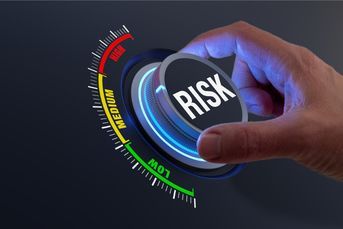SPACs are the investment darling of the pandemic

Special purpose acquisition companies, or SPACs, have been all the rage for the past 12 months, but will the fever outlast the pandemic?
What do former Speaker of the House Paul Ryan, former NBA great Shaquille O’Neal and former nontraded real estate investment trust czar have in common?
They’ve all been busy pitching SPACs, an acronym for special purchase acquisition companies, during the Covid-19 pandemic, and these so-called blank-check companies have seen a boom in the past 12 months.
SPACs are all over the place. It’s a cheap way to raise money with the sponsor pocketing a chunk of the deal’s equity.
Through February 26, some 175 SPAC sponsors have debuted on the public market raising a total of $56 billion, according to a March report by Yahoo! Finance. In all of 2020 — a record year for SPAC IPOs — some 223 SPAC sponsors came to market, according to the report, which cites recent Goldman Sachs research as its source.
SPACs are publicly listed shell companies that don’t have a viable business when they start trading; instead, the money raised from the initial public offering is used to invest in private companies in the hopes of generating returns.
In other words, it’s a shortcut around a traditional IPO. That process can be expensive, time-consuming and poses plenty of regulatory hurdles. Investment bankers collect fat fees from an IPO, and the Securities and Exchange Commission can make life miserable as companies race to meet listing requirements.
And the current market heft of SPACs is formidable. There is currently more than $100 billion of SPAC capital seeking an acquisition, according to the Yahoo! Finance article. That number could easily multiply as the current bunch of listed SPACs adds leverage or sells additional shares.
Shares are sold at $10 each, often with a warrant to purchase an additional share at $11.50.
But investors pay a price. The new company and its sponsor get a stake called a “promote,” essentially paying themselves typically 20% — a hurdle critics don’t like.
After it lists, the new SPAC has two years to buy the private company. Critics again question whether that window of time creates a culture in which the sponsor is under pressure and chasing acquisitions for the sake of acquisitions, to garner the 20% ownership stake.
Shareholders get their money back with interest after that time if no deal is struck.
With hundreds of new blank-check companies forming in the past 12 months, often with big names from finance or entertainment attached, there isn’t enough space in this article to analyze individual offerings. But there are clear trends advisers and their clients should be mindful of when considering these companies.
SPAC investing is often driven by faith or attraction to the personalities in charge of the black check company, as wells as Wall Street’s ability to pitch an easily digested story. Note that the three people listed above each has the adjective “former” attached.
Investing in SPACs means sidestepping the initial public offering process, and some companies and investors both currently appear to like that.
The boom in SPAC listing and investing derives from the other broad trends that have fueled record stock market highs and traders such as Roaring Kitty exhorting followers to take positions in high-risk stocks like GameStop Corp.
Record low interest rates mean borrowing money is cheaper than ever, so investors are chasing yield, and with many professionals not spending money on vacations and nights out, bored investors stuck at home during the pandemic are chasing the next hot stock.
With big-name investors and celebrities heading up this generation of blank check companies, Wall Street is going along for the ride.
It’s a fair question to ask if SPACs will remain an investor darling once the pandemic has subsided. Are these high-profile blank-check companies here to stay?
This article is part of a series of special reports appearing in the March 15, 2021, edition of InvestmentNews.
When retirement money is tied up in a business, closing hurts
Remote compliance mostly meets the challenge of working from home
How Covid-19 changed retirement planning
Learn more about reprints and licensing for this article.







